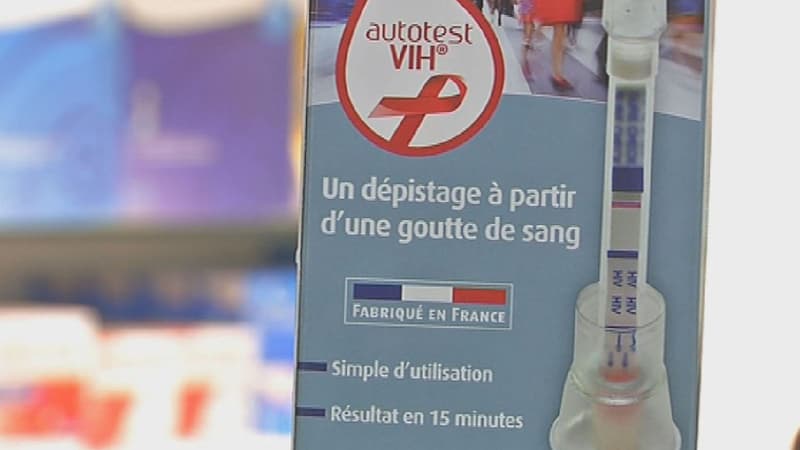Detection of the human immunodeficiency virus (HIV) increased in 2021, but without returning to the level prior to the Covid-19 pandemic, Public Health France stressed on Tuesday, two days before World AIDS Day.
With 5.7 million HIV serologies performed in medical biology laboratories, screening activity began to increase again last year by 8%, the health agency notes. The number of these blood tests had been reduced by 13% between 2019 and 2020 in the context of Covid, after six years of increase.
The number of stable seropositivity findings
The 2021 level “remains below the level seen before the Covid-19 outbreak” (6.1 million), according to a statement.
The number of HIV positive results stabilized in 2021 at 5013 people. It had fallen considerably between 2019 and 2020 (-22%), partly as a result of decreased detection, “but possibly also lower HIV exposure linked to social distancing measures and a drop in migration flows.” . during the pandemic, according to SpF.
Heterosexuals (male or female) and men who have sex with men (MSM) continued to be the most affected categories, accounting for 51% and 44% of HIV findings, respectively. And 29% of these HIV infections were discovered at an advanced stage of infection, a proportion that has not declined in several years.
“A missed opportunity” in case of detection delays
Such detection delays represent “a missed opportunity,” warns Public Health France.
“Early detection allows you to benefit from antiretroviral treatment, reduce the viral load in the body and stop transmitting HIV to partners,” said Florence Lot, head of the HIV/AIDS, Hepatitis B and C, IST unit at Public Health. France, during a press conference.
“Improving screening is essential to reduce the proportion of late diagnoses,” he insisted.
Screening also on the rise for bacterial STIs
For bacterial sexually transmitted infections, detection rates, which fell in 2020, increased again in 2021 for chlamydia, gonorrhea and syphilis, exceeding the level of 2019, before the pandemic, according to Public Health France.
Some 2.3 million people benefited at least once in 2021 from reimbursed screening for a chlamydia infection (+9% compared to 2019), 2.7 million for a gonococcal infection (+6%) and 2.8 million of syphilis (+3%).
The health agency called for “the mobilization of all health professionals” for HIV and STI surveillance, because their participation in existing systems has decreased since the Covid pandemic, particularly for AIDS.
“The data for the years 2020 and 2021 are weak and their interpretation must remain cautious,” he warned.
Source: BFM TV


